Graham Reid | | 3 min read
Gull Rock
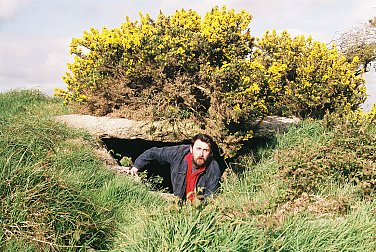
When writing the last Red River Dialect album, which was called Tender Gold and Gentle Blue (2015, Paradise of Bachelors, through Southbound in New Zealand), my everyday was infused with a magnificent, radiant sadness.
A sudden space of loss had opened up and swallowed all sorts of exhausting but addictive inclinations: to hunt for volatility, nurture delusions and hide in distractions. Eventually these waves of sad-joy began to subside and I found myself back on familiar ground with a new understanding of what I was seeking: freshness, movement and vibrancy.
I was learning how to feel perky and how to ride on the wind; the one that is called lungta in Tibetan (and is also a horse). I looked for this energy in chords, rhythms and words. When my friend, the great songwriter Joan Shelley, invited me out on a UK tour to play an opening set, I recognised it as an opportunity to develop these new songs and to try them out at shows. A couple of them took shape before the tour, but most followed after.
Hearing Joan, Nathan Salsburg and Glen Dentinger play and sing every night brought me many glimpses of the fresh genuineness I was seeking.
I tried to turn those glimpses into songs. I wanted to make a whole album about lungta, to be called Windhorse, after the English translation of the term.
It was also going to be a concept album about bells of all kinds.
I used to ring church bells when I was a child in the English change ringing style. I have strong memories of the smell of old wood and damp stone, the delirious cacophony of the six bells, the sight of the dancing ropes and the fear of breaking the stay. The stay is the small piece of wood upon which the heavy bell comes to rest in an upright position when the ringing is done.
If the bell is brought to rest too roughly the stay may be broken, causing the bell to flail around its axle and whipping the rope up into the tower. The leader of our group of campanologists, a Cornish stone-hedger by trade, told tales of ringers who had been whipped up along with the rope and killed, and my experience of ringing became fused with this fear of losing control.
The coil of coloured wool around the portion of the rope that you grip is called the sally, a name derived from Latin and Old French words for leaping, salire and sailie respectively, and related to the English somersault and salmon, the name the Romans gave to the fish that leaps.
As I wrote the songs, this attempt at conceptual coherency started to crumble. Half-familiar sadnesses and new-old confusions poked through the rubble.
For a time I tried to keep them out.
Eventually I gave up, knowing that to treat these experiences like enemies or unwelcome strangers was dishonest and stale.
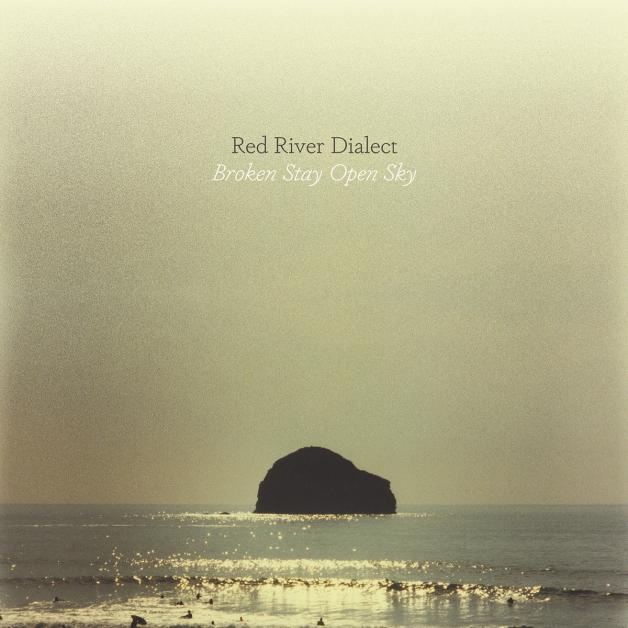 And so each song that makes up this new album
called Broken Stay Open Sky is a coming together of pain
and love, selves and others, embraced together in the same broken
heart, which is moving-joy and still-sad. The cover photograph
portrays Gull Rock, as seen from Trebarwith Strand in North
Cornwall.
And so each song that makes up this new album
called Broken Stay Open Sky is a coming together of pain
and love, selves and others, embraced together in the same broken
heart, which is moving-joy and still-sad. The cover photograph
portrays Gull Rock, as seen from Trebarwith Strand in North
Cornwall.
Once I had seen this image, the work of Dayna Cowper, it would not leave my imagination, and I hoped it could become a part of this album.
Initially I wanted to conceal it inside the album’s sleeve; a double-lurking cave on an inside horizon of childhood memories. But it would not stay hidden, and strangely it shone through every other proposal for the cover.
So now Gull Rock sits there like the hub shared by thirty spokes:
Thirty spokes converge at the hub, but emptiness completes the wheel. Chapter 11, Tao Te Ching
I am glad that this album is not entirely what I intended it to be, and even gladder for the companionship of the band who articulate these songs into a real-shared living.
Simon Drinkwater, Coral Rose, Ed Sanders, Robin Stratton and I had spent a few years playing mostly acoustically, without drums or percussion. In the summer of 2016 we had a fortuitous meeting with drummer Kiran Bhatt, who then joined the band, allowing us to get a little more electric and dynamic once more.
Over the summer we worked up these songs, recording over three days in October 2016 with our friend Jimmy Robertson at the console. We set up as a live band in the room, which was not a big room, and so there is a merging of our playing into each other’s microphones, a bleeding that even Pro Tools cannot efface without taking the song away too.
There were, however, a handful of overdubs, a couple of tricks, and a little bit of corruption.
There was a shadowed rock like a cave in the sky, from which the wheel of a ringing bell turned.
If I could break into song, would I break my stay?
Other Voices Other Rooms is an opportunity for Elsewhere readers to contribute their ideas, passions, interests and opinions about whatever takes their fancy. Elsewhere welcomes travel stories, think pieces, essays about readers' research or hobbies etc etc. Nail it in 1000 words of fewer and contact graham.reid@elsewhere.co.nz.
See here for previous contributors' work. It is wide-ranging

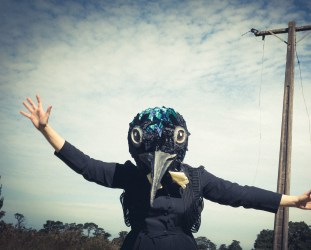

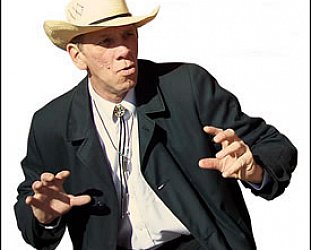
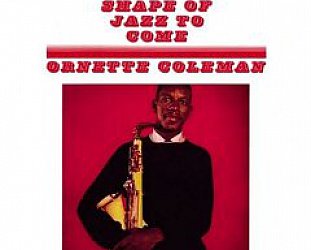
post a comment